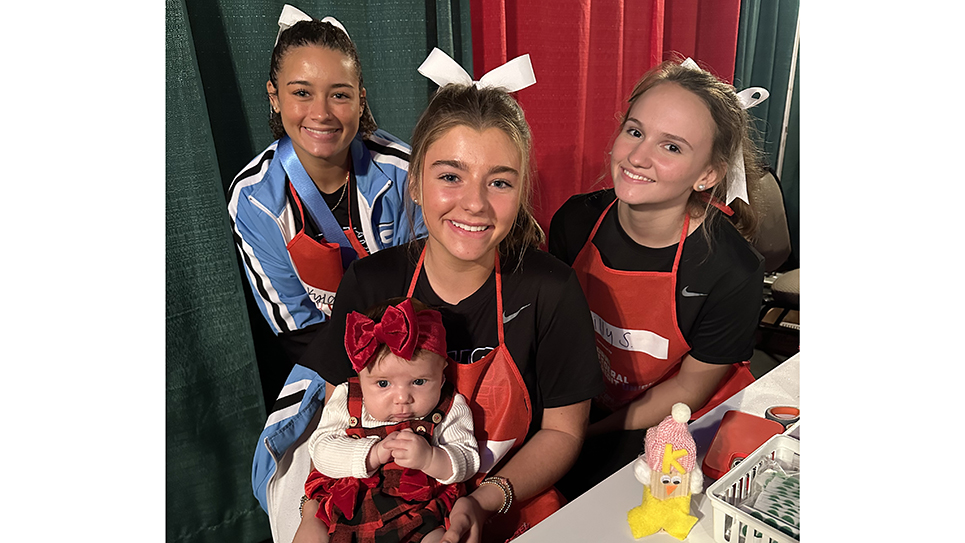By Dr. Jim Ferguson
There’s a difference between Southerners and so-called “Yankees,” just as there are differences between Knoxvillians and folks from San Francisco. My observation is not rocket science, and even the Beach Boys sang about regional differences in “California Girls.” Actually, our differences are American strengths when not politicized.
My son-in-law (SIL) and I were in the market for a box scraper to grade the gravel roads on our farm. In truth, I didn’t know what a box scraper was until a month ago. I’m somewhat like Mr. Douglas on the old sit-com Green Acres. My son-in-law is our local expert on farm equipment and such. However, I’m not beyond the learning curve, so my farm education continues under the axiom: watch one; do one; and then you’re ready to teach someone how to run a John Deere tractor, attach the bucket or box or plow a field. SIL has even introduced me to farm equipment auctions where used, often rusty, farm equipment is bought and sold.
We found our box scraper on Craigslist and I was shocked to find that the seller was an old patient of mine. What a small world! I maintain education goes both ways, and when we drove to examine and ultimately purchase the scraper, I reacquainted my SIL, who hails from Cincinnati, with the nuances of Southern “visiting.” I knew we would purchase the boxer after the first few minutes of inspection, but that’s when the dance began.
I’m a fan of the old Andy Griffith Show. Perhaps you recall the episode where a high pressure businessman was forced to spend the night in Mayberry when his car broke down and he couldn’t get it fixed on a Sunday afternoon. The businessman was totally frustrated with the slower pace of life in Mayberry. However, he was finally won over by Southern hospitality as the businessman was introduced to “porch visiting” by Andy and his family. My ex-patient and his lovely wife offered us more than a box scraper that day; they offered us a lavish spread of food and drink, renewal of relationship and a lovely southern style visit.
I think we would do well to spread the notion of the Southern visit. I’m sure hospitality is not unique to the south; we just have our unique variety. The Master frequently used the occasion of visiting and sharing a meal to present his teaching parables. I remember entering an Irish pub one night and feeling totally out of place amidst a bar full of Irishmen. In an attempt to blend into the crowd, Becky and I ordered a Guinness, even though we don’t like warm, flat, foamy beer. Nonetheless, in short order we were included in the group who were already several pints ahead of us. I remarked to one of my “new best friends” that we were from the southern United States which is noted for its hospitality. I told him that he and his mates seemed equally hospitable and I asked him why he was so friendly- aside from the beer. He said with a lovely Irish lilt in his voice, “Well, we like to drink a little beer and have a good time, because you see, we’re going to be dead for a long time!” Priceless. We came in for a beer and were introduced to an Irish “visit” and offered Irish philosophy!
I read that President Trump invited Chuck Schumer and Nancy Pelosi to dinner at the White House. I guess that the President has given up on the feckless Congressional Republicans. The word sinecure recently popped into my mind as I considered the do-nothing Congress. No, that’s not exactly right. The Republicans work to oppose Trump and kowtow to the despicable media and liberal progressive sophists.
I don’t know why words sometimes pop into my conscious mind, seemingly from nowhere. Mr. Webster defines a sinecure as “a job or position in which someone is paid to do little or no work.” Mr. Webster tactfully does not include Congress in his definition.
I am disgusted with the so-called leadership of our country, especially the Republican Congress. No wonder Jimmy Duncan is washing his hands of the Beltway Boys. I don’t know how he stood the stench this long. I recently told our Tennessee Senators that I will never support or vote for them again.
All of life is relationship. I can’t remember whether I read this, heard this or concluded this truth. Humans are by nature social creatures. We wither in isolation. It is a rare individual who chooses aloneness in a cave or the woods. Despite the hatred of the media and to the consternation of “Maude” Behar, President Trump connects with people in ways that Hillary Clinton was never able to do.
A teacher of the law once confronted Jesus asking him what he could do to achieve eternal life. By this time in history the legalistic Jewish pharisees defined six hundred and thirteen laws which, if followed, would bring salvation. Jesus said that all laws flow from just two perspectives. You are to “Love the Lord your God with all your heart and with all your soul and with all your strength and with all your mind; and your neighbor as yourself.” In other words, you must love God and seek relationship with Him, then you can love (feel good about) yourself and finally show love to your neighbors. Folks, we have too many laws and overlook the fundamental principle from which all laws emanate.
Recently, the hurricanes demonstrated love and relationship. As an internist, I always search for why (foundational principle) something is happening. Why do humans care for strangers? I maintain it is because we were first loved by God and this motive principle produces compassion and drives us to help each other. An example of this is the “cajun navy” which confounds media types who prefer to instead insult Christian charity because they can’t comprehend agape.
Some may question this week’s topic for a “Health and Wellness” column. I feel sympathy for those who can’t fathom the important fundamental principle at work in all human relationships. I once had a resident who was confused as I explained a medical issue to him. I remember him quickly turning his head just as my dog Jack does when trying to triangulate a sound. Similarly, I challenge the confused to search for the fundamental principal of the universe at work in all human experience.






